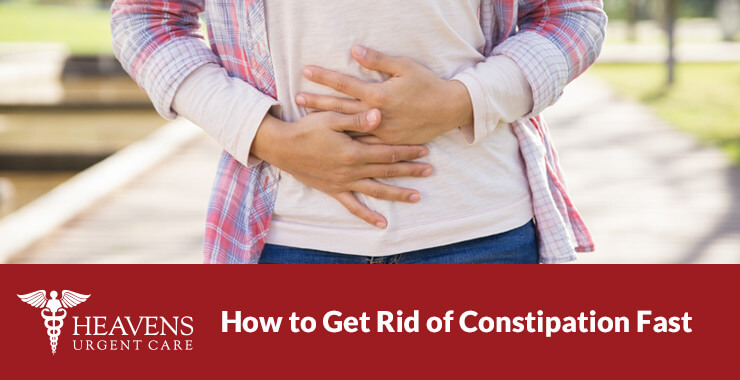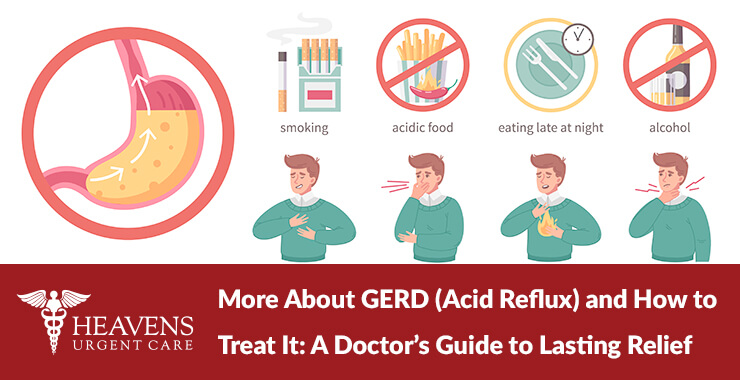Constipation is more common than you might think and if you’ve ever experienced it, you will want to get rid of it fast.
If you have fewer than three bowel movements a week, you may be dealing with constipation. Often, this comes along with the frustrating and sometimes painful task of pushing through dry, hard stools.
There is good news though… with the right knowledge and a few simple strategies, you can often find fast relief from constipation.
This article explores the symptoms of constipation, tips to help you go, foods that can support digestion, ways to prevent constipation from returning, and when the condition is considered serious.
FACT: Research shows that about 16% of adults overall and up to 33% of adults aged 60-101 experience constipation at some point
Symptoms of Constipation
While constipation doesn’t look the same for everyone, there are some common signs and symptoms. They include:
- Fewer than three bowel movements per week
- Stools that are dry, hard, or lumpy
- Straining or difficulty passing stools
- Feeling like your bowels are not fully empty after a bowel movement
- Abdominal bloating, discomfort, or even pain
There are some risk factors associated with chronic constipation. They include increasing age, being female, low activity levels, depression, and certain medications like ondansetron, ibuprofen, dicyclomine, chlorpromazine, furosemide, antacids, and other chemotherapy and endocrine prescriptions.

Tips to Help You Poop
When you’re feeling backed-up and bloated, quick relief is the goal. So, here are four tips that may help get things moving:
- Hydrate: Drinking a full glass of water can sometimes trigger the body to move things along. Aim for at least 8 cups a day.
- Gentle Movement: Physical activity (PA) improves bowel function by enhancing gastrointestinal motility and reducing transit time. So, take a short walk, do some light stretching, or yoga to stimulate bowel activity.
- Bathroom Positioning: Sitting with your knees slightly higher than your hips (using a footstool) helps align your colon and makes it easier to go.
- Over-the-Counter Aids: Fiber supplements, stool softeners, or gentle laxatives can provide temporary relief. Always follow directions and consult your provider if symptoms persist.
INTERESTING FACT: While no direct research proves that store lighting alone triggers the urge to poop, a combination of sensory and psychological factors, like store lighting, is believed to cause a phenomenon called the “Mariko Aoki phenomenon.”
Foods That Support Good Digestion
Your diet plays a big role in bowel regularity. Most Americans eat only 12 grams of fiber a day and that’s just not enough. Adults should aim for 25–35 grams of fiber daily. Adding the right foods can both relieve and prevent constipation.
- High-fiber foods: Fruits like apples, pears, berries, add more leafy green vegetables, beans, and whole grains can help soften stool and add bulk.
- Prunes and figs: Natural sources of sorbitol, which draws water into the intestines.
- Flaxseeds and chia seeds: These seeds are great sources of fiber and are so easy to add to smoothies, yogurt, or oatmeal.
- Healthy fats: Olive oil, avocado, and nuts help lubricate the intestines.
- Plenty of fluids: Water is essential to a smooth bowel movement. In fact, fiber can’t work without water. Herbal teas can also be soothing.
There is no difference whether you eat fiber or take a supplement, but whole foods offer other great health benefits, so start there first.
How to Prevent Constipation
Relief is important, but prevention makes life much easier. Simple habits like eating a fiber-rich diet, staying active, setting aside a daily time to use the bathroom, and managing stress can go a long way to reducing constipation.
When Constipation May Be Serious
While occasional constipation is common, there are times when it signals a more serious health problem. If you notice any of the following below see a medical provider or stop by to visit us at Heavens Urgent Care.
Blood in your stool or rectal bleeding, or severe abdominal pain or cramping. Unexplained weight loss is also a serious health concern. Constipation lasting more than three weeks despite treatment, or a sudden change in bowel habits without a clear reason all may point to conditions like bowel obstruction, colon cancer, or other digestive diseases that should never be ignored.
Constipation can make you feel sluggish, bloated, and uncomfortable, but it doesn’t have to take over your day. By recognizing the symptoms, trying a few quick relief methods, and adopting long-term prevention strategies, you can support a healthier, more regular digestive system.
If constipation becomes a frequent issue or doesn’t improve with these lifestyle tips, it’s time to see your healthcare provider to rule out underlying conditions and find a treatment that works for you.







